Google cuts security corners to gain market share

It has been obvious for some time that Google's app standards for Android are lenient to say the least. That's why Android is the favored platform for mobile malware. But it turns out that Chrome extensions are a huge, and similar problem that I'm beginning to really worry about.
When Android phones started coming out Google had a lot of catching up to do. Back then there was a lot of mindless talk about how many tens of thousands or hundreds of thousands of apps a phone had. Obviously 200,000 apps is twice as good as 100,000, right? The way Google structured their app system for Android seems to me to be designed to maximize the number of apps by making it cheap and easy to create and distribute them. And this happens at the expense of security.
Is that the Samsung Galaxy S II in your pocket, or are you just happy to see me?

I had the pleasure of seeing the Galaxy S II up close last night at Samsung’s big reveal at their retail location in the Upper West Side of New York. Samsung has done good with this phone: bright beautiful screen, camera that actually takes worthwhile (and clear) pics, speedy interface, and very, very light and thin.
One thing stood out at me, and that was the size. It must be because I’m a long time iPhone user who is accustomed to the smaller-sized smartphone. This thing is big. Let’s be clear, though: AT&T’s version of the device has a 4.3-inch display, already making it quite a bit larger than the iPhone that measures just 3.5 inches. But then you come to the Sprint variant -- Epic 4G Touch -- and T-Mobile version, which is a damned monstrosity. With its screen coming in at about 4.52 inches, this thing just feels strange to hold. You might as well put a tablet up to your face.
Steve Jobs' health is a private matter
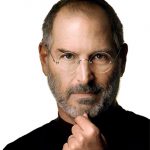
Now that he's no longer Apple CEO, it is.
During Jobs' two medical leaves, starting in early 2009 and 2011, I argued that his health was not a private matter. Apple is a public company, majorly owned by shareholders -- not Jobs, the company's board or any other executive or employee. In Jobs' role as chief executive, and as someone so closely identified with Apple, health impacted his ability to perform daily duties and, therefore, could affect Apple operations and financial performance. Jobs is no longer chief executive. He remains an Apple employee, according to a recent 8-K filing but in unspecified role, and is Chairman of the Board. But he is no longer directly responsible for Apple operations.
DOJ pharmacy investigation undermines Google credibility

Last week the Department of Justice announced the conclusion of its investigation of Google permitting online Canadian pharmacies to place advertisements through AdWords, facilitating the unlawful importation of controlled pharmaceuticals into the United States. Google's large forfeiture -- fully $500 million -- reveals the gravity of the offense, and as part of the settlement, Google affirmatively admits liability.
These admissions and the associated documents confirm what I had long suspected: Not only does Google often ignore its stated "policies", but in fact Google staff affirmatively assist supposed "rule-breakers" when Google finds it profitable to do so.
I lost my passion for Apple
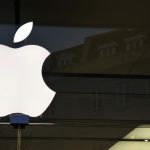
Earlier this month I sold my 11.6-inch MacBook Air (using Samsung Series 5 Chromebook now) and iPhone 4 (switched back to Google Nexus S). I don't miss either Apple product. Not the least bit. In reflecting, I realize that the spell is broken. Without Apple Chairman Steve Jobs driving innovation or inspiring passion -- the oft-called "reality distortion field" -- my Apple enthusiasm is gone. Perhaps it's return to sanity.
I should have connected the dots sooner, but often people don't easily apply even basic math to emotional matters, because the nuances move swiftly on the surface with many slower currents and fast-churning eddies below. The ocean is an excellent analogy. Yesterday, in viewing Nate Mook's slideshow of 20 products introduced by Jobs, and resurfacing emotions about the different launches, I had an epiphany. I could see how much Jobs' passion infected mine -- his ability to inspire about what Apple products offered.
Reader Commentary: How could HP be so stupid?

The following commentary is a guest post written by BetaNews reader Avatar X. A blogger from Mexico City, he has done software and tech reviews for the last 10 years.
One week ago today, 18 of August of 2011, HP discontinued webOS devices (Pre and TouchPad) and also announced their intention to sell or spin-off their PC business, in order to concentrate in the more lucrative and higher-margin markets of servers, cloud services and enterprise software.
It was time for Steve Jobs to go

In my six-plus years covering Cupertino here and elsewhere I can tell you I did not expect to write a story like this for quite a few more years yet. Apple is Steve Jobs, and Steve Jobs is Apple.
But let's talk turkey here: Jobs' health has been an issue, almost a morbid fascination among the tech press. Whole stories were devoted to analysis on his appearance as it obviously changed from keynote to keynote.
Do a good deed today, uninstall Windows XP
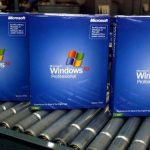
Let's compare the major computer operating systems at the moment. We have Windows XP, Windows Vista and Windows 7. We have various Linux distributions, and we have Mac OS X.
Of these, obviously Windows XP has the weakest security, by far, and Windows XP has the biggest marketshare, too. Globally close to half of all computers still run XP.
Best Buy nukes tablet partners, resumes HP TouchPad sales

So much for my heaping praise on Best Buy. The retailer has decided to unload its unsold stock of TouchPads after all. It's an atomic blast that will have grave consequences for Best Buy and, more importantly, its other tablet partners. Apple might just laugh all the way to the bank.
The problem is this: Best Buy is sitting on an inventory of as many as 245,000 TouchPads -- or was yesterday. Today, who knows how many there will be for how long. By midday yesterday, cheap TouchPads were sold out pretty much everywhere, except HP online. Today, Best Buy owns TouchPad sales and already has sold out its online stock. Now it's up to retail stores to clear inventory. Last week, my local Best Buy sold the 16GB TouchPad for $499.99. Today it's $99 -- $149 for the 32GB model -- for an attractive 9.7-inch tablet, running the well-reviewed WebOS.
Sit down, kick off your shoes and cozy up to the new BetaNews

Please pardon the dust, and watch out for falling debris. BetaNews relaunched overnight August 20. The site has moved from a custom content management system to (a very customized) WordPress.
BetaNews founder Nate Mook and his developer team have done a great job getting the new site up and running on WP, which will offer lots more flexibility curating and presenting content and allow for better reader engagement. Expect more changes as we tweak the look and feel. I'm looking forward to lots of (cough, cough) work this creates for me as managing editor. It will be fun.
Can HP survive Leo Apotheker?
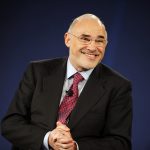
It has been a rough week for Hewlett Packard, which stock took a beating following Thursday’s announcement that the company was rapidly exiting the hardware business, all but killing off WebOS and its associated line of mobile devices, including TouchPad. Within a day, a fifth of the company’s value disappeared on Wall Street.
How much, you say? A staggering $16.2 billion -- some $4 billion more than Google paid for Motorola Mobility. Analysts seem dismayed, and have downgraded the company’s stock. At least one of the credit rating agencies has threatened a downgrade of HP’s debt, and investors seem to doubt the company’s ability to make the switch.
Anti-malware vendors unite to fight cybercriminals

I travel a lot. One day I might be in Australia, next day Japan and then off to the United States. Why such a hectic schedule? It's all about how the antivirus industry cooperates. I've been in meetings. Specifically, I've been in meetings with our competitors.
I've now been working with computer viruses for more than 20 years. During this time I've come to realize that the antivirus industry is quite unique in the way direct competitors help each other. It's not publicly known, but antivirus companies like F-Secure, Symantec, McAfee, Trend Micro and others help each other out all the time.
Network admins stunned and reeling from repeated Firefox upgrades
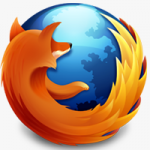
What, another major Firefox release? Tuesday will see the release of Firefox 6.0, eight weeks after the release of 5.0 and less than 5 months after the release of 4.0 which they have already end-of-lifed.
It's all Google's fault. Version 1 of Chrome released on December 11, 2008. Here we are, less than 1,000 days later, with version 13 as the stable release. Of course Mozilla is the descendant of Netscape which invented the idea of releasing products formally designated as beta, which Google extended to having some products never leave beta. Together the two have taken any meaning out of version numbers.
I want my Windows Update Rollup!

When you set up a new Windows system, especially an XP system, you may be faced with a titanic load of updates to apply to it in order to bring it up to date. If you don't have a loaded-up WSUS server or similar system this means pulling potentially hundreds of megabytes over your Internet connection, and multiple reboots. Microsoft could make it a lot easier.
F-Secure just brought this up by asking for an "update rollup" for Windows XP SP3. A perfectly reasonable request if ever there were one. When they set up a minimal install of XP SP3 (e.g. no calc.exe) in a VM they have to apply 157 updates after SP3. As they point out, SP3 itself was basically just an update rollup. So why doesn't Microsoft do more?
Patently unfair: Google's patent half-truths come home to roost

In the matter of a few short hours on Wednesday night, Google's seemingly well-intentioned and cogent argument against its competitors vis a vis Android blew up in its face. In the fallout, the search giant now appears to be speaking out of both sides of its mouth and may have strengthened its competitors' claims against it.
See, Google's chief legal officer David Drummond argued that there's a "a hostile, organized campaign against Android" using patents he calls "bogus." This came just days after it lost its bid for a host of Nortel patents to a consortium of companies that included Apple, EMC, Ericsson, Microsoft, Research in Motion, and Sony.
Recent Headlines
Most Commented Stories
BetaNews, your source for breaking tech news, reviews, and in-depth reporting since 1998.
© 1998-2025 BetaNews, Inc. All Rights Reserved. About Us - Privacy Policy - Cookie Policy - Sitemap.